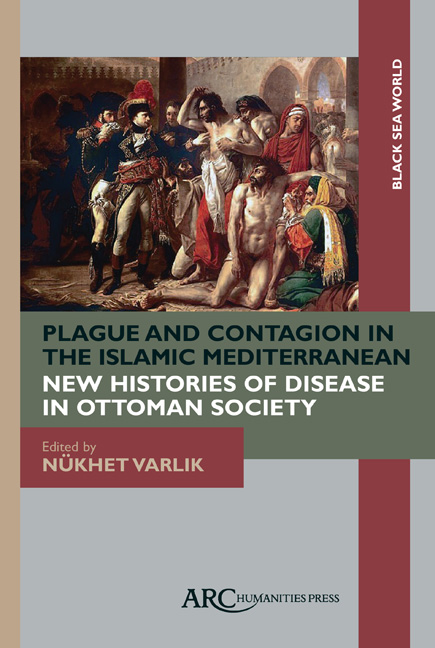Scholars, Sufis, and Disease: Can Muslim Religious Works Offer Us Novel Insights on Plagues and Epidemics among the Medieval and Early Modern Ottomans?
Published online by Cambridge University Press: 25 January 2021
Summary
RESEARCHERS FACE A number of obstacles when seeking to understand how the Muslim populations of the medieval and early modern period of Ottoman times coped with plagues and other epidemic diseases. Among these difficulties is that fact that information is often scattered across a wide variety of sources, many of which do not treat the topic directly. Utilizing these sources, which have not been addressed in the historiography to date, can yield interesting results. My contribution to this volume aims to demonstrate the potential usefulness of specific types of early modern Ottoman religious writings, which can illuminate how various segments of the Ottoman population viewed plagues, diseases, and possible remedies for them in the pre-modern era.
Specifically, the religious literature examined here will encompass two types of sub-genre. First, I will focus on a legal text compiled in the early seventeenth century, written by an Ottoman Hanbali jurisprudent named Marʿīī b. Yūsuf b. Abu Bakr Zayn al-Dīīn al-Karmīī (d. 1624), and entitled Taḥqīq al-ẓunūn bi-akhbār al-ṭāʿūn (“Verification of Suppositions via the Accounts of Plagues”). The work subsequently gained popularity among a substantial segment of the Ottoman religious elite in the centuries that followed, despite its author being a member of the Hanbali law school. While texts of a similar type have been treated in the existing scholarly literature, such as the sixteenth-century works of İdris-i Bidlisi, Risālat al-ʿibāʾ ʿan mawāqiʿ al-wabāʾ (“Treatise on Turning Away from the Locations of Epidemics”); Kemalpaşazade, Risālah fī al-ṭāʿūn (“Treatise on the Plague”); and Taşköprüzade's Risālah al-shifāʾ li-adwāʾ al-wabāʾ (“Treatise on the Cure for Epidemic Disease”); this particular example has not been treated in sufficient detail. Marʿī's contents deserve greater scrutiny because his text emerges out of a period in Ottoman history that came to be marked by an “ethos of verification.” This was an early modern intellectual movement among some Muslim thinkers whereby they sought not merely to explain the content of earlier works, but also to give various kinds of evidentiary proofs to further develop their interpretations, and thereby take a more critical spirit toward the topics under investigation. This background is important, because previous scholarship has suggested that the Ottoman thinkers of the sixteenth century gradually moved away from the mythical conceptions of the plague in earlier eras toward one more harmonized with ideas of preventing contagion, and attempting to avoid or control disease.
- Type
- Chapter
- Information
- Plague and Contagion in the Islamic Mediterranean , pp. 27 - 56Publisher: Amsterdam University PressPrint publication year: 2017



